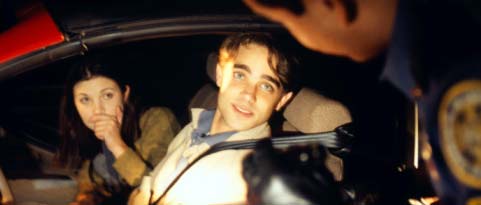Hypoglycemia & DUI Defense to Impairment: Looks are not everything!
Probable cause to arrest a person for suspicion of DUI is a critical part of any drunk driving case. If the prosecution can’t establish that the police officer had probable cause to arrest someone all the evidence following the arrest is inadmissible and therefore excluded.
 Most police officers will testify that they observed the suspect acting as if they were under the influence of drugs or alcohol. Specifically, the officer will state during a Motion to Suppress Evidence that motorist slurred his words, was confused, unsteady on their feet, could not properly communicate or had trouble focusing. In addition the officer may testify that a person’s movement was slow and unnatural.
Most police officers will testify that they observed the suspect acting as if they were under the influence of drugs or alcohol. Specifically, the officer will state during a Motion to Suppress Evidence that motorist slurred his words, was confused, unsteady on their feet, could not properly communicate or had trouble focusing. In addition the officer may testify that a person’s movement was slow and unnatural.
Prior to arguing a Motion to Suppress evidence your attorney should ask if you suffer from any medical conditions such as diabetes which could cause you to appear intoxicated. Diabetes is a disease in which the body does not produce or property use insulin. Diabetes can cause hypoglycemia (low blood glucose) or hyperglycemia (high blood glucose). Hypoglycemia can occur very quickly and it’s physical presentation is similar to alcohol impairment. Symptoms of hypoglycemia can include slurred speech, dizziness, and disorientation. If left untreated hypoglycemia can cause loss of consciousness or a seizure. Unlike hypoglycemia, hyperglycemia occurs gradually. Symptoms of hyperglycemia include feeling thirsty, constant urination, and a dry mouth. Hyperglycemia can cause a condition called Ketoacidosis which can lead to a diabetic coma or death. Ketoacidosis produces a fruity like smell to a person’s breath which a police officer can confuse for the smell of alcohol.
It is important that your attorney evaluate if you have diabetes and if that condition could have caused either hypoglycemia or hyperglycemia. Either of these conditions could have caused the officer to confuse alcohol impairment with a medical condition. The below chart compares hypoglycemia and hyperglycemia:
Hypoglycemia vs. Hyperglycemia Symptoms
| Characteristic | Hypoglycemia | Hyperglycemia |
| Onset | Rapid (minutes) | Gradual (days) |
| Mood | Labile, irritable, nervous, weepy, combative | Lethargic |
| Mental status | Difficulty concentrating, speaking, focusing, coordinating | Dulled sensorium, confused |
| Inward feeling | Shaking feeling, hunger, headache, dizziness | Thirst, weakness, nausea/vomiting, abdominal pain |
| Skin | Pallor, sweating | Flushed, signs of dehydration |
| Mucus membranes | Normal | Dry, crusty |
| Respiration | Shallow | Deep, rapid (Kussmaul) |
| Pulse | Tachycardia | Less rapid, weak |
| Breath odor | Normal | Fruity, acetone |
| Neurologic | Tremors late: hyperreflexia, dilated pupils, convulsion | Paresthesia |
| Ominous signs | Shock, coma | Acidosis, coma |
| BloodGlucose
Ketones Osmolarity pH Hema- tocrit HCO3 |
Low: below 70 mg/dl
Negative/trace Nor- mal Normal Normal Normal |
High: 240 mg/dl or more
High/large (only if DKA) High Low (7.25 or less) High Less than 15eEq/L |
| Urine:Output
Sugar Acetone |
Normal
Nega- tive/trace |
Polyuria to oliguria
High High |
Diabetes can produce an impairment type reaction even if you haven’t consumed any alcohol. If a police officer fails to explore this issue during an investigation, it could provide a strong basis for an argument during a motion to suppress evidence. The symptoms for hypoglycemia or hyperglycemia can resemble intoxication as the chart above shows.
